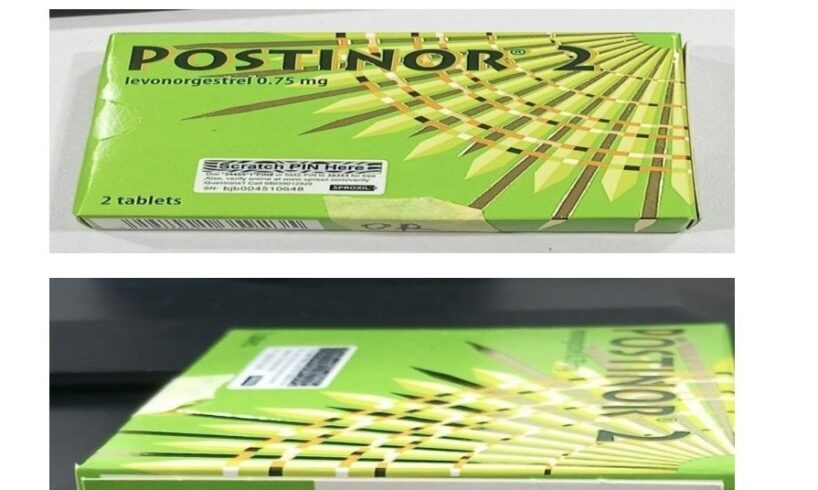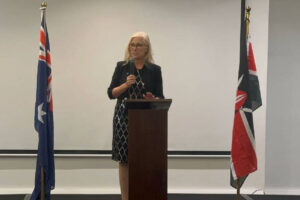
The National Agency for Food and Drug Administration and Control (NAFDAC) has alerted Nigerians about the circulation of falsified batches of Postinor-2 (Levonorgestrel 0.75mg), a widely used emergency contraceptive pill.
The agency disclosed this in a statement posted Tuesday on its official X account, warning that counterfeit versions labelled as Type 1 and Type 2 have been discovered in the Nigerian market.
Distinguishing the counterfeit products
According to NAFDAC, the falsified products were reported by the Society for Family Health (SFH), the authorised marketing authorisation holder for Postinor-2, which confirmed that it did not import the affected batches.
The agency said the counterfeits can be identified by spelling errors and poor printing. For instance, the pin verification sticker on the fake products uses a smaller font size and carries the misspelt word “Veify” instead of “Verify”.
On the back of the pack, the fake products are wrongly marked “Distnibuted in Nigeria” instead of “Distributed in Nigeria”.
The original batch number is T32458H, manufactured in February 2023 and set to expire in February 2027. The falsified products are labelled with batch numbers T36184B (August 2024 – August 2028) and 332 (March 2023 – February 2027).
Health risks and dangers
NAFDAC warned that the falsified contraceptives pose serious health risks due to the likelihood of containing incorrect or harmful ingredients, improper dosages of levonorgestrel, and being manufactured in unsafe conditions.
“The risks include failure of contraceptive effect, exposure to toxic or harmful contaminants, unpredictable side effects, delayed or missed opportunity for genuine emergency contraception, and long-term reproductive health complications,” the agency said.
It further cautioned that counterfeit medicines are unregulated and illegal, making their safety and efficacy impossible to guarantee.
Surveillance and public advisory
The agency said it has directed all zonal directors and state coordinators to intensify surveillance and carry out a mop-up of the falsified products across the country.
Distributors, retailers, healthcare professionals, and caregivers were advised to remain vigilant within the supply chain to prevent the circulation of fake medicines.
“All medical products must be obtained from authorised or licensed suppliers, and patients should carefully check authenticity and packaging details before use,” the statement read.
The agency also urged health workers and consumers to report suspicious medicines or adverse side effects to the nearest NAFDAC office, via its toll-free line 0800-162-3322, or by email to [email protected].
Reports can also be submitted through its e-reporting platforms.
About contraceptives
Contraceptives including daily hormonal pills, implants, intrauterine devices, and emergency options such as Postinor-2, play an important role in preventing unintended pregnancies.
READ ALSO: NAFDAC warns against fake Cowbell milk in circulation
Although generally safe, they can trigger mild side-effects like nausea, mood changes or irregular bleeding, and in some cases require medical screening to ensure they are suitable, particularly for women with underlying health conditions such as hypertension or a history of blood clots.
Nigeria continues to struggle with a high unmet need for contraception, where many women who want to avoid or delay pregnancy are not using any effective method.
The World Health Organisation (WHO) estimates that about 257 million women of reproductive age worldwide face the same challenge.
In Nigeria, the problem is compounded by limited awareness and misinformation, leaving many women without accurate knowledge of how contraceptives work, their effectiveness and potential risks.





